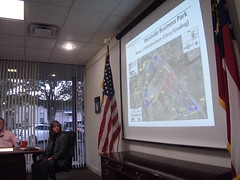Harvey Wasserman wrote Friday for EcoWatch, Nuclear Power’s Green Mountain Grassroots Demise,
The accelerating revolution in renewables has allowed solar, windWe can end CWIP in Georgia. It will benefit Georgia Power and the EMCs as well as all the rest of us when we stop wasting tax and customer dollars on boondoggles like Plant Vogtle or biomass or private prisons and get on with clean, profitable, job-creating renewable energy in Georgia: wind off the coast and sun inland.and other green sources to outstrip atomic reactors in cost, time to build, ecological impact and safety. As billions pour into Solartopian sources, private investment in atomic energy has all but disappeared—except where there are massive taxpayer subsidies.
Even that’s not enough. In 2011, President Obama handed $8.33 billion in federal loan guarantees to the builders of two reactors at Georgia’s Vogtle. But Peach State ratepayers are already being soaked for billions more in pre-payments, and the cost of the project is soaring. A parallel financial disaster looms at the Robinson site in neighboring South Carolina. Though the industry assumes these four reactors will eventually be finished, economic realities may say otherwise.
Cost estimates for new nukes have been soaring even before construction begins. Even with federal money, the builders still demand that state ratepayers foot the bill as the process proceeds, meaning consumers are on the hook for multiple billions even if the reactors never open. Pitched battles over this Construction Work in Progress scam have already been won by consumers in Missouri and are being fought in Iowa and elsewhere. As the years of building drag on, costs will escalate while renewables continue to become cheaper. Sooner or later, construction is likely to stop, as it did at numerous projects in the 1970s and 1980s which were never finished.
-jsq











